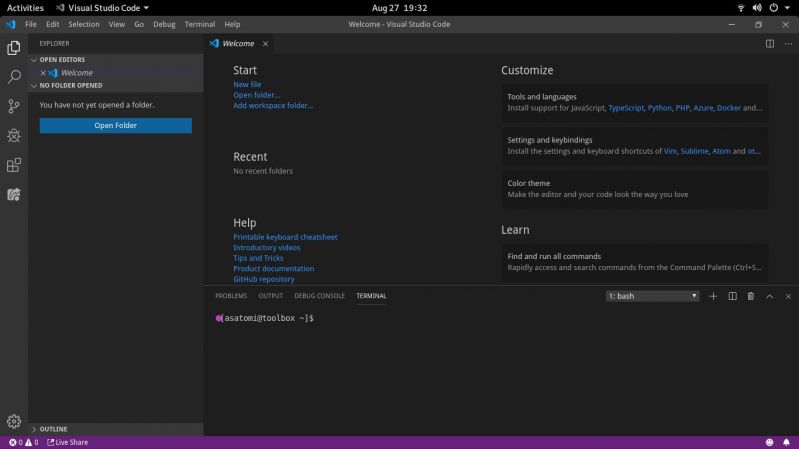Join devRant
Do all the things like
++ or -- rants, post your own rants, comment on others' rants and build your customized dev avatar
Sign Up
Pipeless API

From the creators of devRant, Pipeless lets you power real-time personalized recommendations and activity feeds using a simple API
Learn More
Search - "ostree"
-
I finally moved to Fedora Silverblue 30 which is a really awesome OS.
Silverblue Edition unlike the standard version, runs a immutable core. That means the entire FS is not writable except for certain parts that are mounted to /var. While this is limiting, this allows for atomic updates, which is the whole point of Silverblue.
Now this also might throw off even myself, because I might need to run VSCode in the host and I might need C++ libs. Fortunately there's a tool named toolbox that allows you to use standard DNF inside a OCI container. Now the thing is, now you need to tell your IDE to use it after installing it.
I wrote a little helper script to do just that. I wrote it primarily for VSCode but it should also work for your IDE if you happen to want to try to use Silverblue.
Helper script: https://t.co/sXYOgcwLBg?amp=1
Also if you wanna try Silverblue for yourself, here's some notes:
* To install apps, you need to run flatpak. Make sure you also have the flathub repo listed.
* don't use the Flatpak version of the IDEs. If possible, use the RPM versions. Silverblue allows you to install traditional packages (to some degree, not everything works in this thing because of the immutable design) in the host. So as much as possible if you need dev libs, use toolbox for those.
* Silverblue also comes with podman and buildah installed (aka what if Docker had no daemon and was more secure?)
*Do your updates via rpm-ostree upgrade, or turn the auto updater on if you're lazy
All in all I like this environment, I've used this kind of workspace before (Chrome OS), so its pretty easy for me to get used to.
What do you think guys, think you'll give it a shot? 5
5
